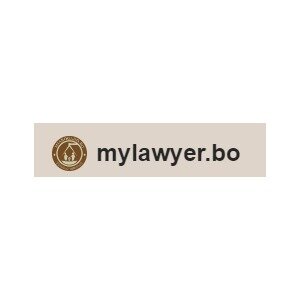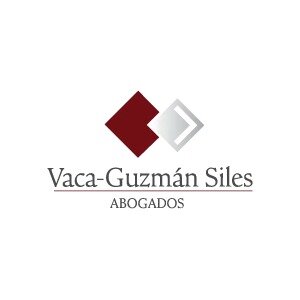Best Education Law Lawyers in Bolivia
Share your needs with us, get contacted by law firms.
Free. Takes 2 min.
Or refine your search by selecting a city:
List of the best lawyers in Bolivia
About Education Law in Bolivia
Education Law in Bolivia is primarily governed by the General Education Law, known as "Ley Avelino Siñani-Elizardo Pérez." This legal framework is designed to ensure equitable access to free education for all citizens and is committed to promoting intercultural and bilingual education throughout the country. The aim is to integrate indigenous education systems with modern education practices, ensuring respect for cultural diversity and promoting sustainable development and social justice.
Why You May Need a Lawyer
There are several situations where individuals or institutions may require legal assistance in the field of Education Law in Bolivia. These situations include conflicts over school management, disputes related to educational rights and access, allegations of discrimination within educational settings, issues related to student or teacher discipline, and compliance with varied educational regulations. Additionally, matters involving curriculum standards or the establishment of private educational institutions can also necessitate legal guidance.
Local Laws Overview
The primary legislation influencing Education Law in Bolivia is the "Ley Avelino Siñani-Elizardo Pérez," which highlights the principles of inclusivity, interculturality, and plurilingualism in education. Key aspects include a commitment to free and universal education, the promotion of indigenous languages alongside Spanish, and the reform of educational structures to be more participatory and reflective of community needs. The law also emphasizes the professional development of teachers and sets standards for the accreditation and evaluation of educational institutions.
Frequently Asked Questions
What is the aim of the General Education Law in Bolivia?
The law aims to provide equitable access to free and high-quality education, promote intercultural understanding, and integrate indigenous knowledge systems into the broader educational framework.
Is education in Bolivia free?
Yes, basic and secondary education in public institutions is free as mandated by the Bolivian Constitution and Education Law.
How does the law address bilingual education?
Education Law mandates the promotion of bilingual education, ensuring that indigenous languages are taught and preserved alongside Spanish in schools.
What rights do students have under Bolivian Education Law?
Students have the right to access quality education without discrimination, participate in educational activities, and receive instruction in their native languages.
What are the responsibilities of teachers under Bolivian law?
Teachers are responsible for providing quality education, adhering to professional standards, and promoting cultural diversity and inclusion within their teaching practices.
Can private schools establish their own curriculum?
Private schools must adhere to national education standards but have some flexibility in curriculum design, provided they meet the required regulatory approvals.
How are educational disputes resolved?
Disputes are typically resolved through mediation or legal proceedings involving educational authorities and, if necessary, courts.
What enforcement mechanisms exist for education rights?
The Ministry of Education is responsible for enforcing educational standards and rights, often requiring compliance audits, and addressing grievances reported by stakeholders.
Are there measures for students with disabilities?
Yes, the law mandates inclusive education and provides for accommodations and specialized programs to support students with disabilities.
How does the law support teacher development?
The law emphasizes ongoing professional development through training programs, advanced studies, and certification processes to enhance teaching quality.
Additional Resources
For further assistance, individuals can reach out to the Ministry of Education in Bolivia, local education departments, or non-governmental organizations focused on educational advocacy. Additionally, institutions like the Bolivian Ombudsman’s Office may offer guidance on education-related legal issues.
Next Steps
If you need legal assistance in Education Law, consider consulting with a lawyer specializing in this field. Start by gathering any relevant documentation related to your issue and seek a consultation to explore your legal options. Research local legal aid services or reach out to educational advocacy groups for additional support and referrals to competent legal professionals.
Lawzana helps you find the best lawyers and law firms in Bolivia through a curated and pre-screened list of qualified legal professionals. Our platform offers rankings and detailed profiles of attorneys and law firms, allowing you to compare based on practice areas, including Education Law, experience, and client feedback.
Each profile includes a description of the firm's areas of practice, client reviews, team members and partners, year of establishment, spoken languages, office locations, contact information, social media presence, and any published articles or resources. Most firms on our platform speak English and are experienced in both local and international legal matters.
Get a quote from top-rated law firms in Bolivia — quickly, securely, and without unnecessary hassle.
Disclaimer:
The information provided on this page is for general informational purposes only and does not constitute legal advice. While we strive to ensure the accuracy and relevance of the content, legal information may change over time, and interpretations of the law can vary. You should always consult with a qualified legal professional for advice specific to your situation.
We disclaim all liability for actions taken or not taken based on the content of this page. If you believe any information is incorrect or outdated, please contact us, and we will review and update it where appropriate.
Browse education law law firms by city in Bolivia
Refine your search by selecting a city.













